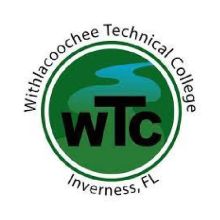Withlacoochee Technical College


Selected Programs at Withlacoochee Technical College
Explore programs at Withlacoochee Technical College. This list is curated by SkillPointe to match skills-based industries and careers that don't require a four-year degree.
Browse Training Programs (23)
Electrician
Electricity Certificate
This program focuses on broad, transferable skills, stresses the understanding of all aspects of the electricity industry, demonstrates such elements...
View Program
HVAC Technician
Heating, Ventilation, Air-Conditioning/Refrigeration Certificate
Training focuses on electrical theory and application, component identification and comprehension of A/C and Commercial Refrigeration systems, hands...
View Program
Metal Fabricator
Welding Technology Certificate
The training includes but is not limited to use of blueprints and/or shop drawings, use of gases and/or welding processes according to diagram...
View Program
Welding Technology Certificate
The training includes but is not limited to use of blueprints and/or shop drawings, use of gases and/or welding processes according to diagram...
View Program
Pipefitter / Steamfitter
Welding Technology Certificate
The training includes but is not limited to use of blueprints and/or shop drawings, use of gases and/or welding processes according to diagram...
View Program
Welder
Welding Technology Certificate
The training includes but is not limited to use of blueprints and/or shop drawings, use of gases and/or welding processes according to diagram...
View Program
Welding Technology Certificate
The training includes but is not limited to use of blueprints and/or shop drawings, use of gases and/or welding processes according to diagram...
View Program
Medical Assistant
Medical Assisting Certificate
This 1300-hour program prepares students for a variety of clinical and administrative duties that include but are not limited to: assisting...
View Program
Medical Assisting Certificate
This 1300-hour program prepares students for a variety of clinical and administrative duties that include but are not limited to: assisting...
View Program
Medical Records and Health Information Technician
Medical Assisting Certificate
This 1300-hour program prepares students for a variety of clinical and administrative duties that include but are not limited to: assisting...
View Program
Medical Assisting Certificate
This 1300-hour program prepares students for a variety of clinical and administrative duties that include but are not limited to: assisting...
View Program
Nurse - LPN / LVN
Practical Nursing Certificate
Course completion skills include personal; family and community health; structure and function of the human body; nutrition; human growth and...
View Program
Phlebotomist
Medical Assisting Certificate
This 1300-hour program prepares students for a variety of clinical and administrative duties that include but are not limited to: assisting...
View Program
Chef and Head Cook
Professional Culinary Arts and Hospitality Certificate
Course content includes the following: housekeeping/sanitation, equipment operation, food preparation, serving of food, proper storage of food, and...
View Program
Data Security Management
Applied Cybersecurity Certificate
This program offers a sequence of courses that provides coherent and rigorous content aligned with challenging academic standards and relevant...
View Program
IT Support Specialist
Network Systems Administration Certificate
The Network Systems Administration (NSA) program is a challenging entry level program designed to start the student in the information technology (IT)...
View Program
Network Systems Administration Certificate
The Network Systems Administration (NSA) program is a challenging entry level program designed to start the student in the information technology (IT)...
View Program
Network Systems Administration Certificate
The Network Systems Administration (NSA) program is a challenging entry level program designed to start the student in the information technology (IT)...
View Program
Technology Support Services Certificate
The Technology Support Services (TSS) program is designed to start the student in the information technology (IT) industry as a help desk technician...
View Program
Technology Support Services Certificate
The Technology Support Services (TSS) program is designed to start the student in the information technology (IT) industry as a help desk technician...
View Program
Network and Computer Systems Administrator
Network Systems Administration Certificate
The Network Systems Administration (NSA) program is a challenging entry level program designed to start the student in the information technology (IT)...
View Program
Correctional Officer
Correctional Officer Certificate
The Correctional Officer Career and Technical Certificate program will provide job related training to students. The content will include but is not...
View Program
Criminal Investigator
Florida Law Enforcement Academy Career and Technical Certificate
The Florida Law Enforcement Academy Career and Technical Certificate program provides content which includes, but is not limited to, knowledge of...
View Program
Florida Law Enforcement Academy Career and Technical Certificate
The Florida Law Enforcement Academy Career and Technical Certificate program provides content which includes, but is not limited to, knowledge of...
View Program
Police Officer
Crossover from Correctional Officer to Law Enforcement Officer Certificate
The Crossover from Law Enforcement Officer to Correctional Officer Career and Technical Certificate program is designed to prepare students who are...
View Program
Florida Law Enforcement Academy Career and Technical Certificate
The Florida Law Enforcement Academy Career and Technical Certificate program provides content which includes, but is not limited to, knowledge of...
View Program
Auto Body Technician
Automotive Collision Technology Technician Certificate
This program prepares students for employment as Automobile Body Repairers and Painters. Training includes refinishing skills; sheet metal repair...
View Program
Auto Mechanic
Automotive Service Technology Certificate
This program prepares students for employment and/or specialized training in the automotive industry. The instruction, course of study, facilities...
View Program
Withlacoochee Technical College
Address
1201 W. Main Street
Inverness, FL 34450
Inverness, FL 34450
Phone number
352-726-2430